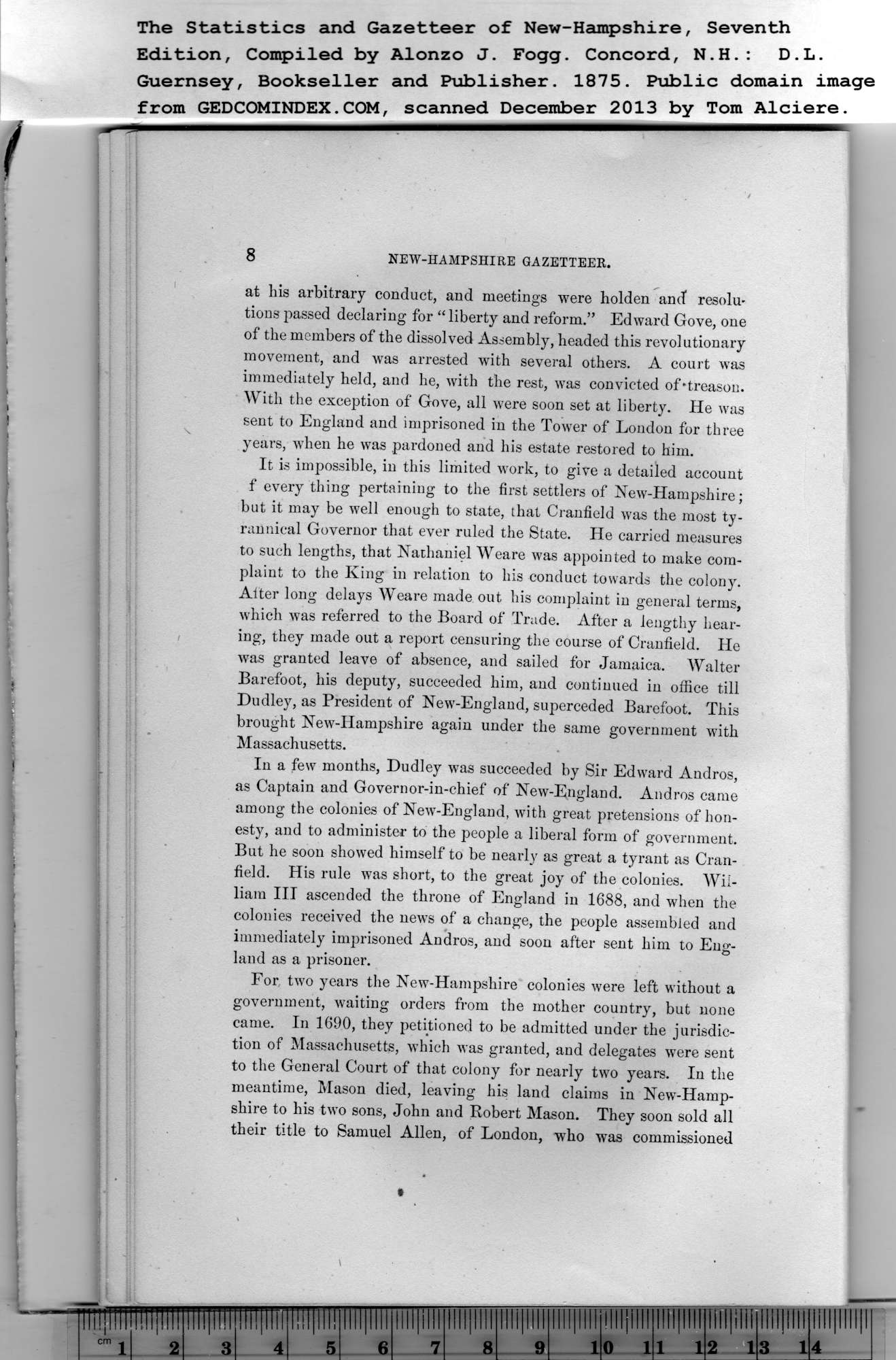|
8 NEW-HAMPSHIRE GAZETTEER.
at his arbitrary conduct, and meetings were holden and resolu-
tions passed declaring for “ liberty and reform.” Edward Gove, one
of the members of the dissolved Assembly, headed this revolutionary
movement, and was arrested with several others. A court was
immediately held, and he, with the rest, was convicted of treason.
With the exception of Gove, all were soon set at liberty. He was
sent to England and imprisoned in the Tower of London for three
years, when he was pardoned and his estate restored to him.
It is impossible, in this limited work, to give a detailed account
f every thing pertaining to the first settlers of New-Hampshire;
but it may be well enough to state, that Cranfield was the most ty-
rannical Governor that ever ruled the State. He carried measures
to such lengths, that Nathaniel Weare was appointed to make com-
plaint to the King in relation to his conduct towards the colony.
After long delays Weare made out his complaint in general terms,
which was referred to the Board of Trade. After a lengthy hear-
ing, they made out a report censuring the course of Cranfield. He
was granted leave of absence, and sailed for Jamaica. Walter
Barefoot, his deputy, succeeded him, and continued in office till
Dudley, as President of New-England, superceded Barefoot. This
brought New-Hampshire again under the same government with
Massachusetts.
In a few months, Dudley was succeeded by Sir Edward Andros,
as Captain and Governor-in-chief of New-England. Andros came
among the colonies of New-England, with great pretensions of hon-
esty, and to administer to the people a liberal form of government.
But he soon showed himself to be nearly as great a tyrant as Cran-
field. His rule was short, to the great joy of the colonies. Wil-
liam III ascended the throne of England in 1688, and when the
colonies received the news of a change, the people assembled and
immediately imprisoned Andros, and soon after sent him to Eng-
land as a prisoner.
For two years the New-Hampshire colonies were left without a
government, waiting orders from the mother country, but none
came. In 1690, they petitioned to be admitted under the jurisdic-
tion of Massachusetts, which was as granted, and delegates were sent
to the General Court of that colony for nearly two years. In the
meantime, Mason died, leaving his land claims in New-Hamp-
shire to his two sons, John and Robert Mason. They soon sold all
their title to Samuel Allen, of London, who was commissioned
|
|
tip |
llll! |
|
lill|illl |
1: |
lll!|llll |
IIIPIIII |
!llp!lll |
IIIPIIII |
llipill! |
mpiiii |
IIIPIIIPI |
|
3 |
4 |
5 |
6 |
7 |
8 |
9 |
l| |
0 X |
1 _ j |
!
Ii |
3 1 |
4 |
PREVIOUS PAGE ... NEXT PAGE
This page was written in HTML using a program written in Python 3.2
|
